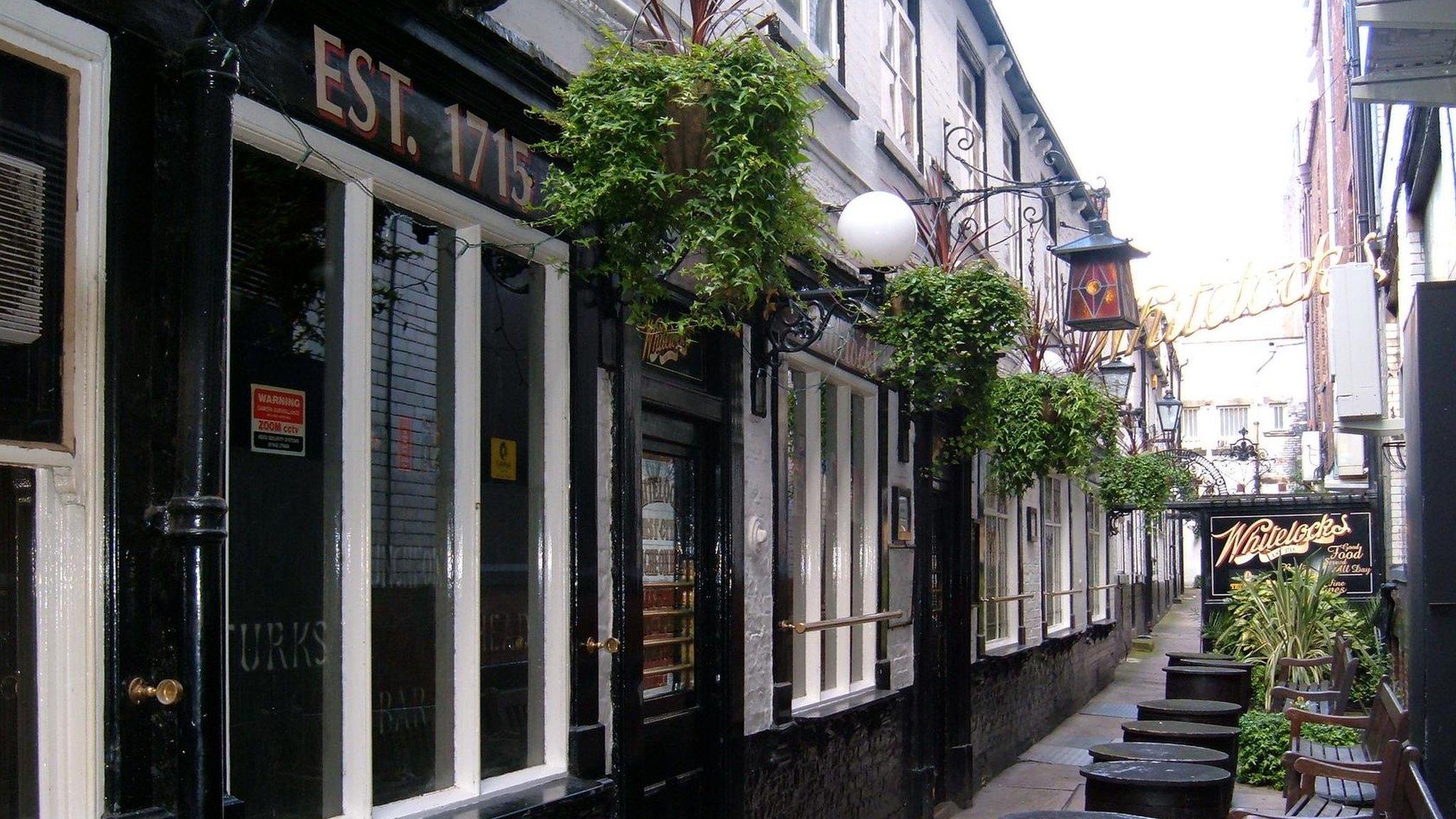Is Sheffield the world's real ale capital?
- Published
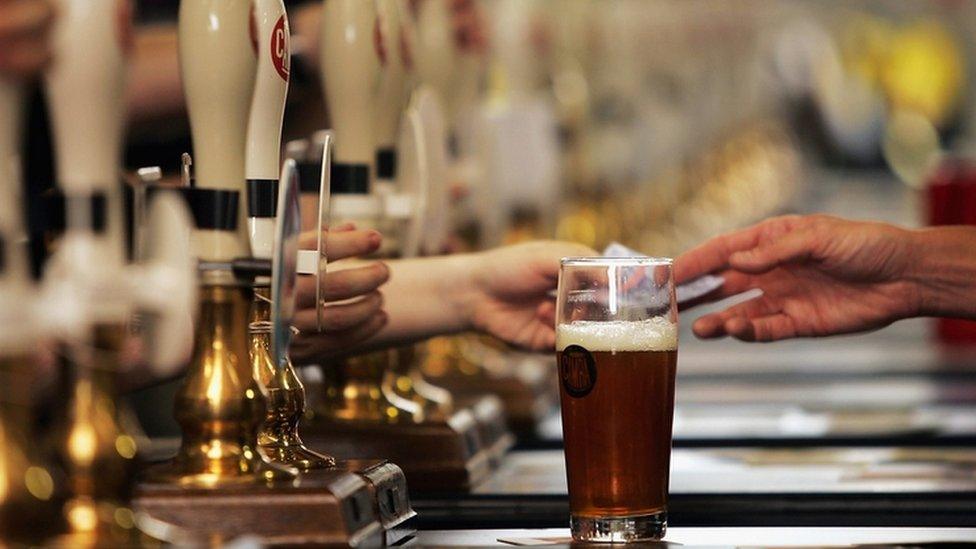
Sheffield's beery brilliance has been a hidden gem with local beer for local drinkers
The Sheffield region is the "real ale capital of the world" according to new report, but just what does that mean?
A snapshot of the region's brewing industry, external by beer writer Pete Brown found Sheffield has 23 breweries.
"A significant brewing city" with one brewery per 24,000 residents, it has almost five times more breweries per capita than greater London, it said.
But here's the thing - Sheffield's beery brilliance has been a hidden gem with local drinkers for years.
Kate Major, chairman of the city's branch of the Campaign for Real Ale (CAMRA) and landlady of The Three Tuns, said a glut of very knowledgeable beer drinkers helped explain why Sheffield had so many breweries.
"The report is very exciting but it is nothing we didn't know already in Sheffield," she said.
"Many of our breweries are tiny and we like the beer they produce too much to let a lot of it out."

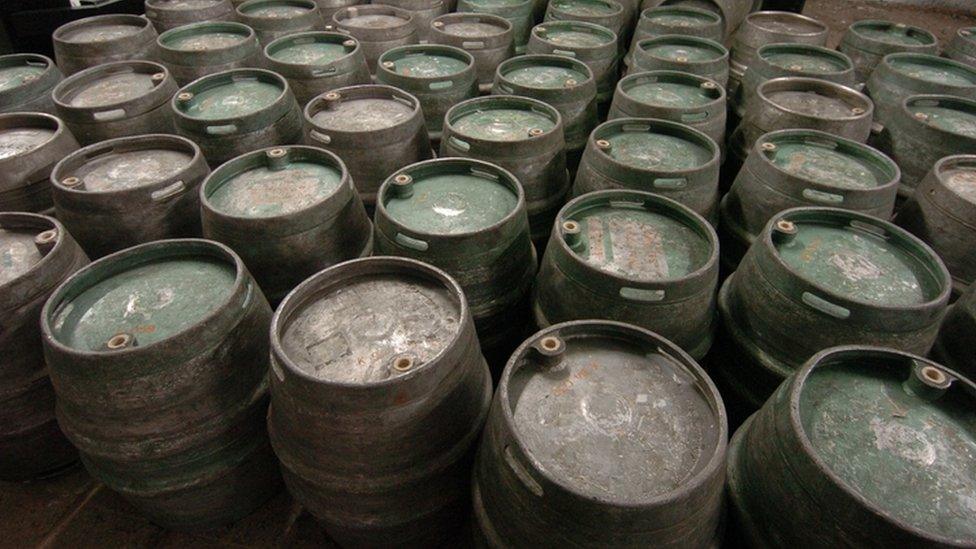
The brewing process
Beer is brewed with just a few ingredients - water, malt barley, hops and yeast
Hot water is added to the malt to produce what brewers call the "wort", which contains sugars from the barley
Hops are added to the wort to impart bitterness and help the beer keep
The wort is boiled, strained and cooled
Yeast is pitched into the brew and left to ferment, which converts the sugars in the liquid into alcohol
The beer is then left to mature

The report, commissioned by the University of Sheffield, finds almost nine out of 10 of the city's brewers could be described as "microbreweries" - those that brew less beer than the threshold for beer duty.
They also focus on their core territory, keeping three quarters of production in the city.
It also claimed what makes the city's beer scene special is it produces 400 different beers, many of which are hard to find anywhere else.
But the city's brewing history goes back as far as 1758 when its first brewery was founded.
Over the next 100 years 30 brewers sprung up, making the steel city something of a brewing centre. But by World War One there were only around 16 breweries left and the number continued to decline for decades after.
Then, in the 1980s, something stirred: a brewing movement which made Sheffield a precursor to the more recent national explosion in "craft beer".
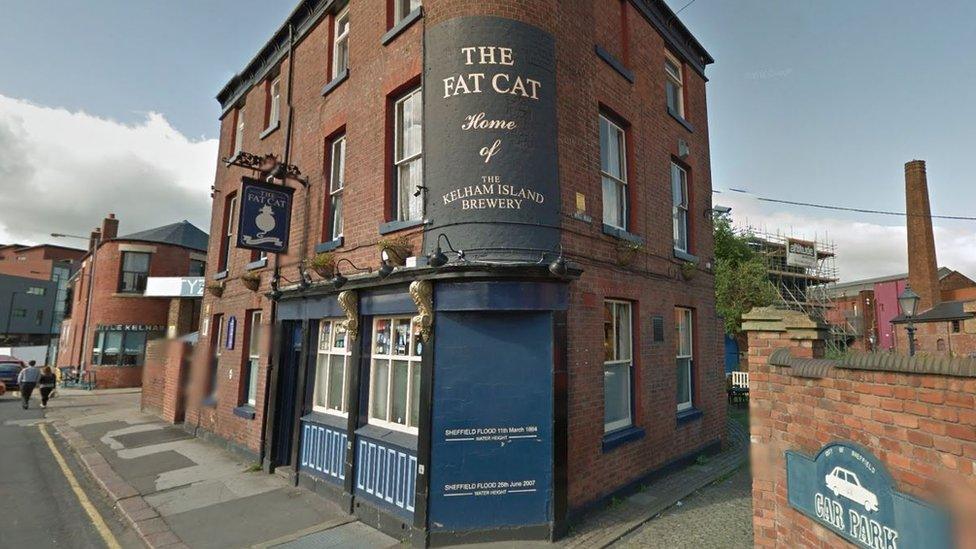
Kate Major: "The general trend... all started with the Fat Cat"
Dave Wickett was a polytechnic lecturer and real ale enthusiast who bought a run-down pub in a derelict area of Sheffield in 1981 and called it the Fat Cat.
His bar stocked lots of interesting beers and starting a brewery helped get the city's beer ball rolling, Ms Major said. He died in 2012.
"The general trend for Sheffield's new beer all started with the Fat Cat and the Kelham Island area" she added.
Sheffield University professor Vanessa Toulmin said beer and pubs are the "cultural glue that holds the city together".
"Sheffield has always been a city of makers and it's no surprise that this extends to beer too," she observed.
Even though the report concedes London, Manchester and Leeds are better known as exciting beer destinations, it could be the cat is out the bag when it comes to Sheffield's success as a centre of beer excellence.
Ms Major has the final say: "We have room in Sheffield for a lot more people to come and drink our beer and as a city we need to be telling everybody".
- Published30 December 2015
- Published11 September 2014
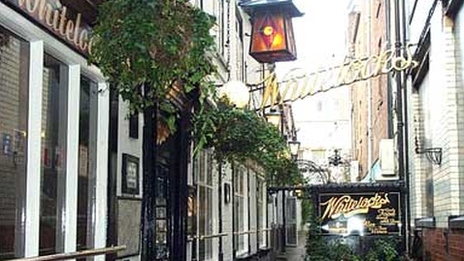
- Published13 January 2014
